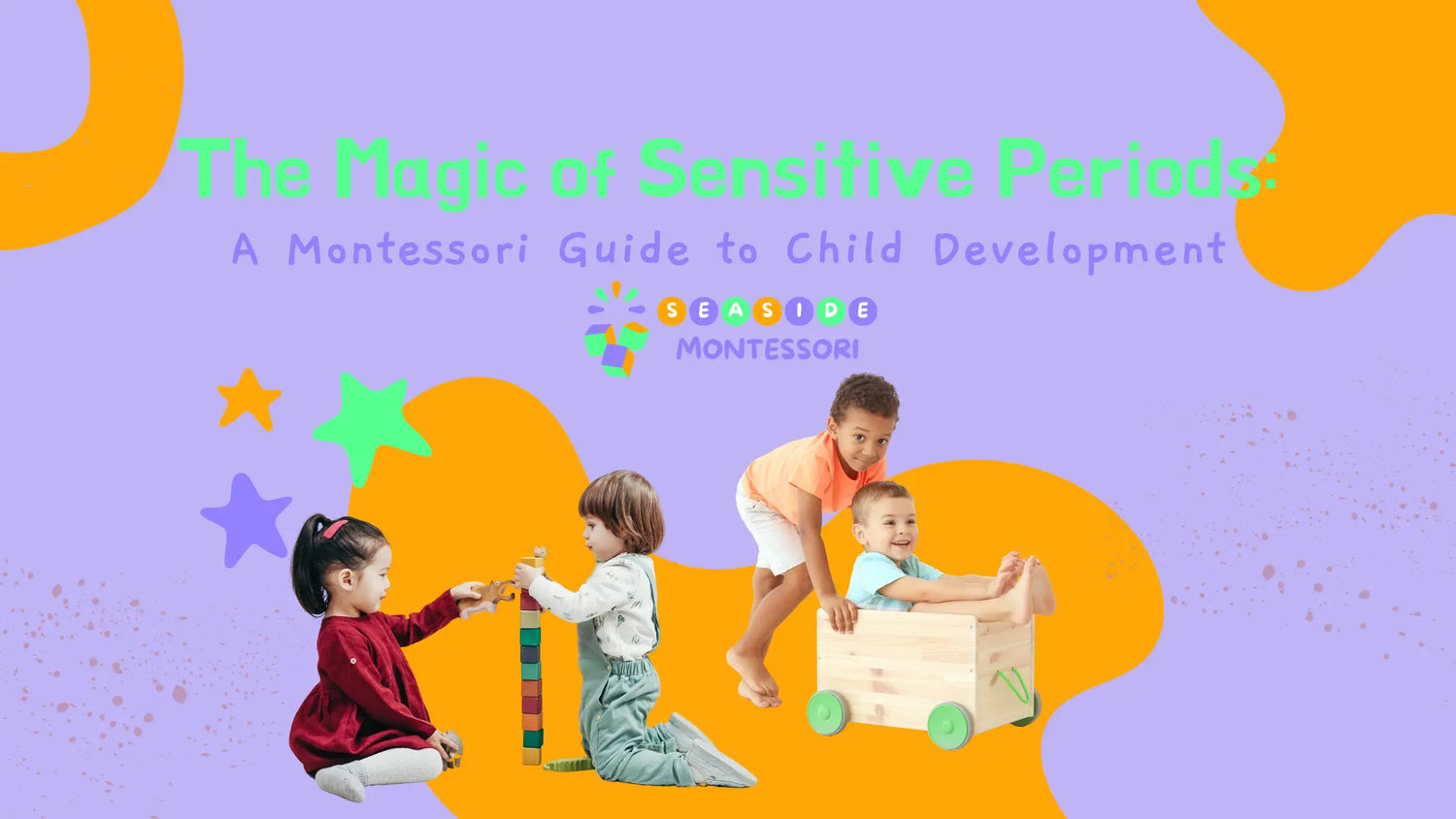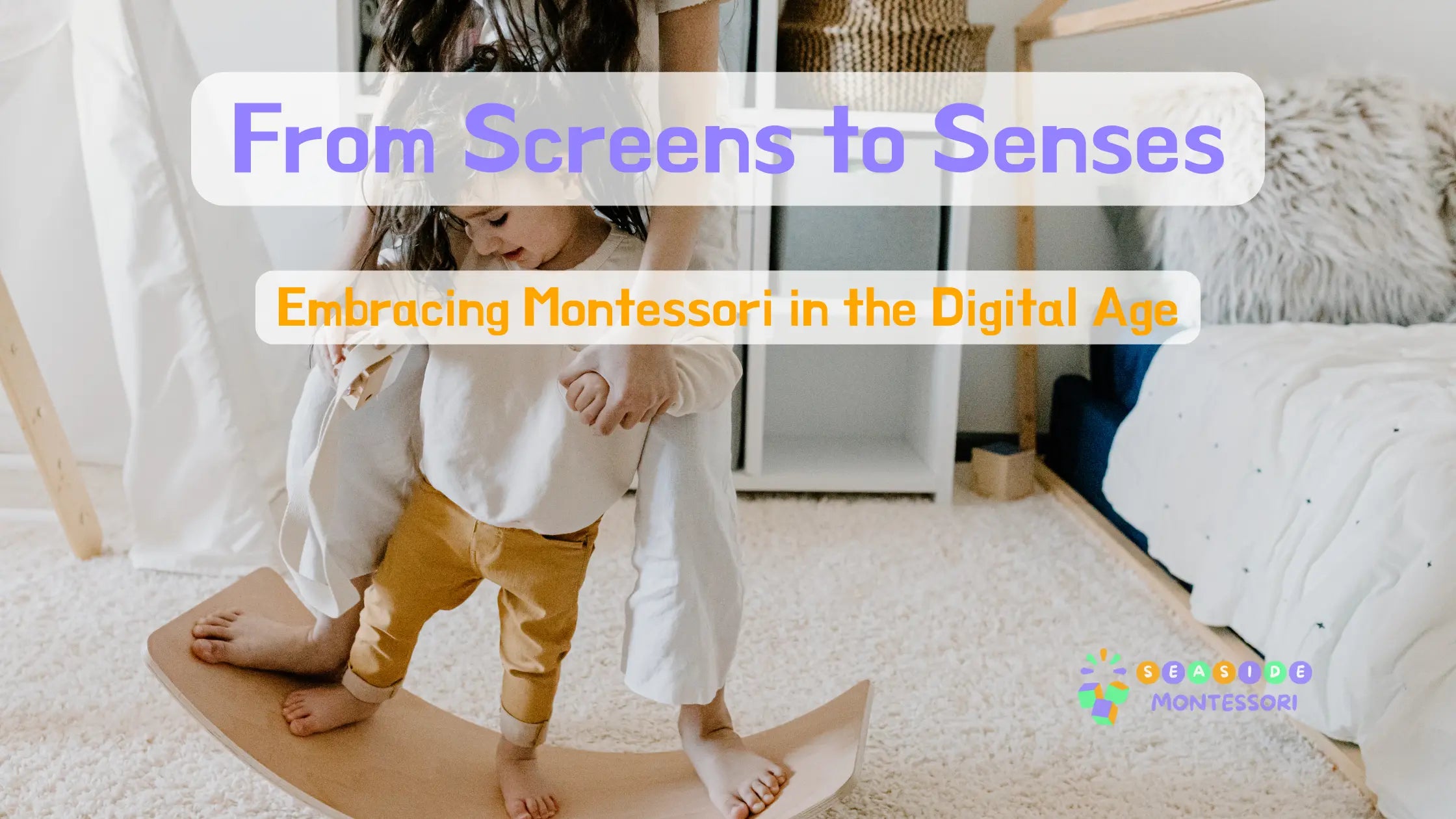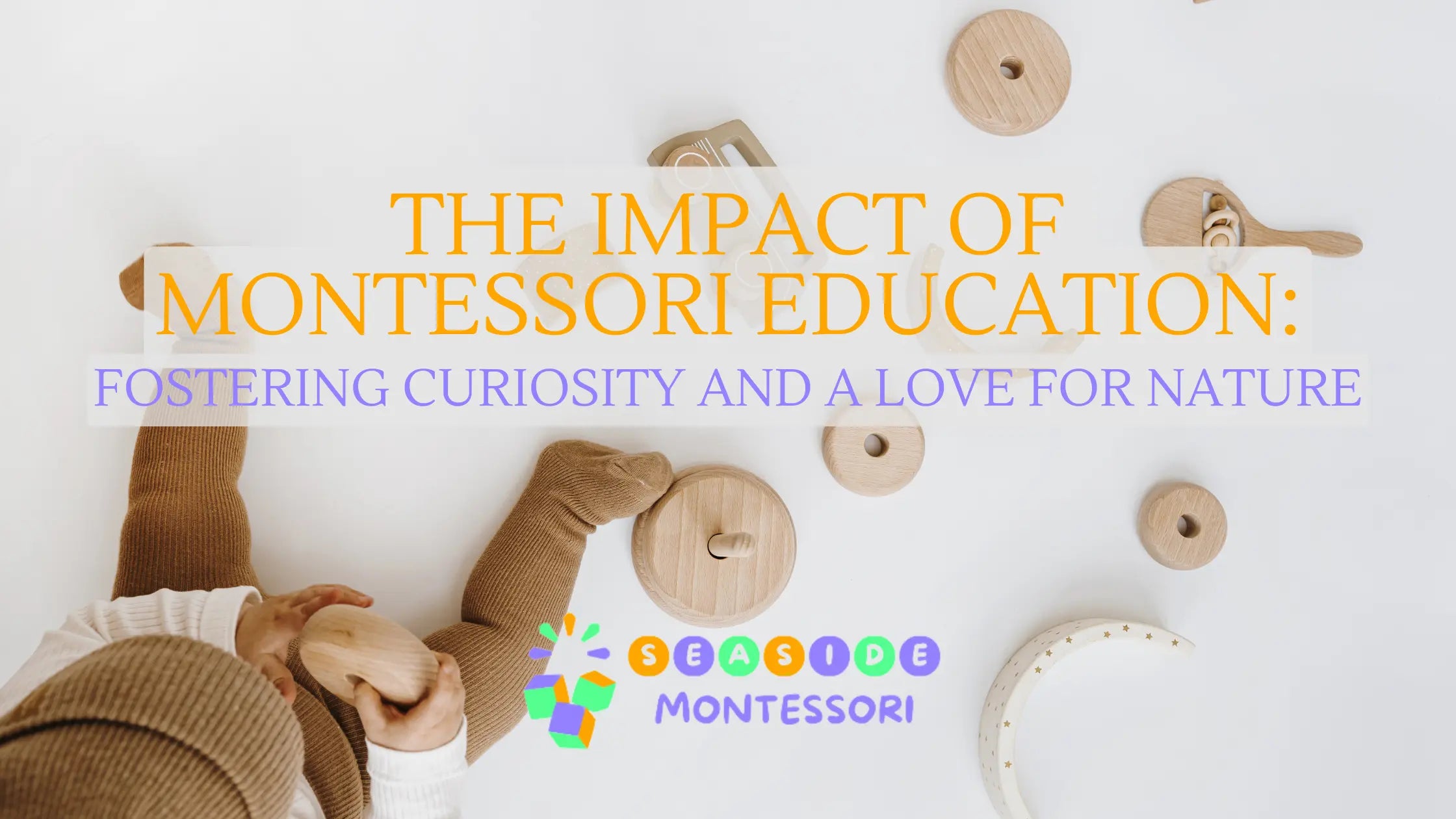In the serene journey of childhood, every moment pulses with potential.
Dr. Maria Montessori, a pioneer in child education, introduced the concept of "sensitive periods." These are windows of opportunity during which children display an extraordinary capacity to absorb certain aspects of their environment. Understanding these periods can transform how we educate our children, aligning our teaching methods with the natural rhythm of child development.
Understanding Sensitive Periods
Sensitive periods are phases in a child's life when they are particularly receptive to certain stimuli. These phases are transient, and the child's focus is so intense that once mastered, the interest wanes, and a new focus emerges. Dr. Montessori identified several sensitive periods in early childhood, from birth through age six, which include:
- Language (birth to around 6 years): This period is when children show a remarkable ability to acquire spoken language from their environment without formal instruction. The sounds of their mother tongue are absorbed, and soon, the words and sentence structures become part of their daily expressions.
- Order (1 to 3 years): Young children during this phase crave predictability. A consistent routine and an orderly environment help them make sense of the world and feel secure. This is why toddlers often insist on routines and can become upset when their expectations are not met.
- Sensory Skills (birth to around 4 years): Children are naturally drawn to experiences that stimulate their senses. This period is critical for developing the abilities to observe differences and similarities, judge sizes, and note patterns, all foundational for logical thinking later.
- Motor Skills (birth to around 4 years): The urge to move and explore is irresistible in young children. This sensitivity is tied to the development of gross and fine motor skills, as children learn to crawl, walk, run, and handle objects.
- Social Skills (2.5 to around 6 years): As children approach three years of age, they become particularly sensitive to social cues and begin to learn how to interact with others. This period is crucial for developing empathy, manners, and the ability to share and cooperate.
How to Support Each Sensitive Period
As parents and educators, recognizing and nurturing each sensitive period can guide our approach to childcare:
- For Language: Talk often to your child, read daily, and sing songs. This rich linguistic environment supports their natural inclination to learn language.
- For Order: Keep your child’s environment tidy and consistent. Establish routines that make their day predictable and comforting.
- For Sensory Skills: Provide diverse sensory experiences through play. Montessori materials designed to differentiate textures, colors, and shapes are particularly beneficial.
- For Motor Skills: Encourage physical activity. Allow space and time for moving freely, and provide toys that promote coordination and muscle development.
- For Social Skills: Facilitate group activities and playdates. Model positive interactions and guide them in understanding social norms and emotional responses.
By aligning our teaching methods with the sensitive periods identified by Montessori, we not only respect each child’s individual development but also maximize their learning potential. At Seaside-Montessori, we believe in supporting each child’s journey through these magical phases of growth. By embracing the natural tempo of their development, we empower them to build strong foundations for a lifetime of learning and discovery.
Are you interested in learning more about how Montessori materials can enhance your child’s sensitive periods? Visit our shop at www.seaside-montessori.com to explore our resources and enrich your child's developmental journey.








Leave a comment
All comments are moderated before being published.
This site is protected by hCaptcha and the hCaptcha Privacy Policy and Terms of Service apply.